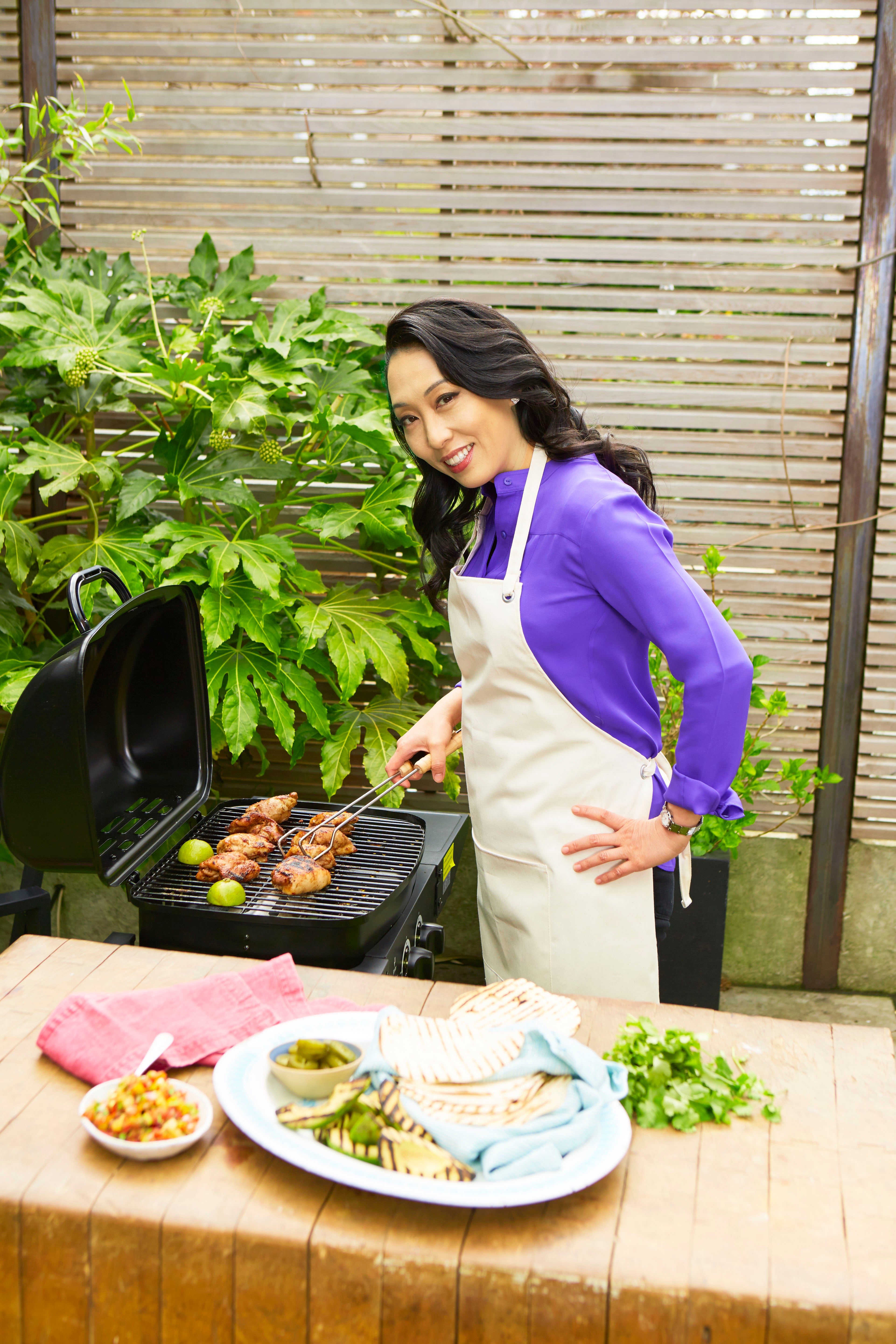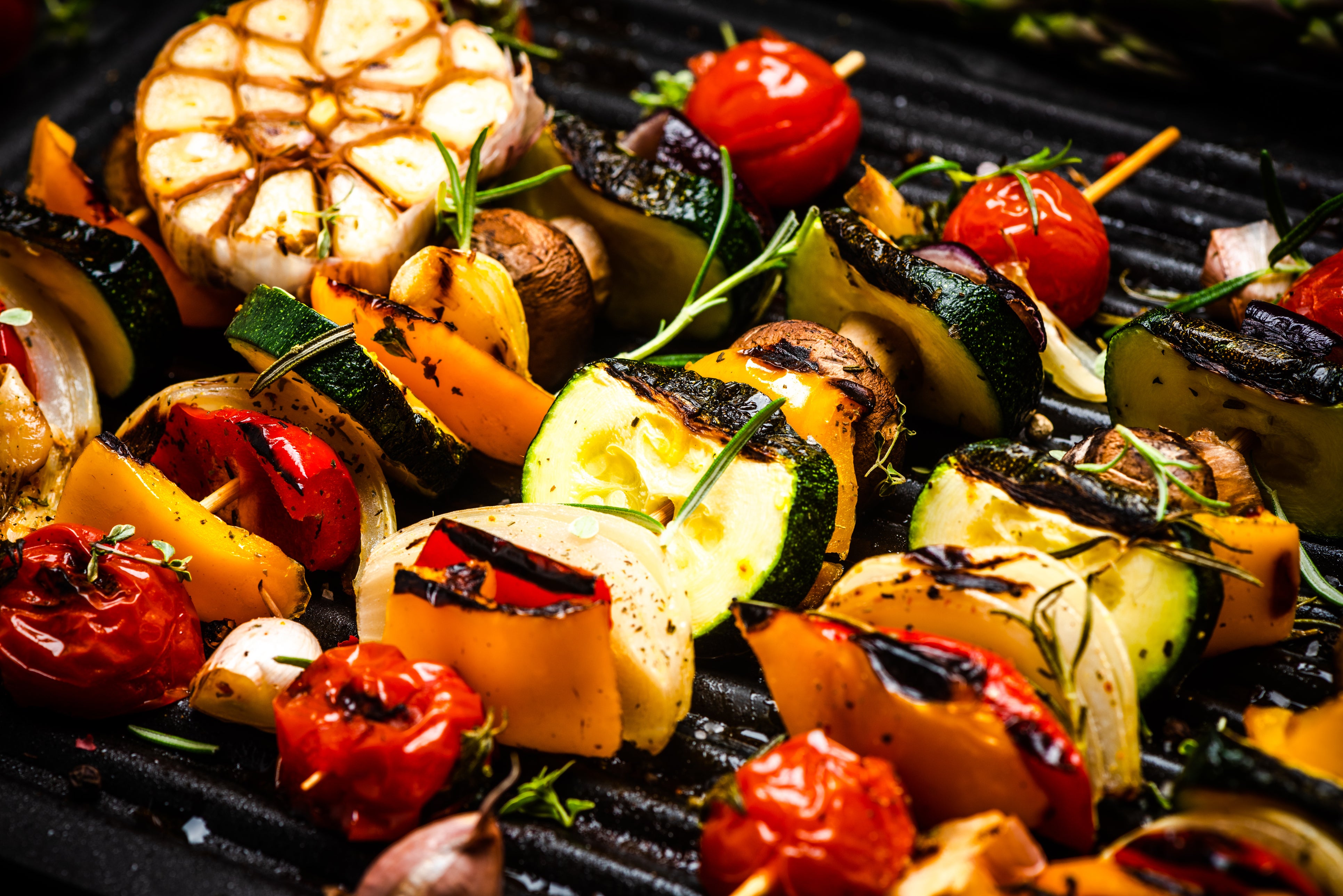Master the barbecue with celebrity chef Judy Joo’s top tips
As Britain comes in as one of the worst barbecuing nations in the world, the co-founder of Seoul Bird offers Sean Russell her expertise on how best to up our grill game


Your support helps us to tell the story
From reproductive rights to climate change to Big Tech, The Independent is on the ground when the story is developing. Whether it's investigating the financials of Elon Musk's pro-Trump PAC or producing our latest documentary, 'The A Word', which shines a light on the American women fighting for reproductive rights, we know how important it is to parse out the facts from the messaging.
At such a critical moment in US history, we need reporters on the ground. Your donation allows us to keep sending journalists to speak to both sides of the story.
The Independent is trusted by Americans across the entire political spectrum. And unlike many other quality news outlets, we choose not to lock Americans out of our reporting and analysis with paywalls. We believe quality journalism should be available to everyone, paid for by those who can afford it.
Your support makes all the difference.It’s official, Britain has been voted one of the worst barbecuing nations in the world. We came a dismal ninth out of the 10 nations surveyed – one above Turkey, with the USA topping the list and Australia just behind.
Why? Doesn’t every Brit think they know best behind the grill? Well, around the world our reputation just doesn’t hold up. Apparently our barbecues are “boring” and much of the US believes the only thing on British grills are sausages and burgers. Australians think our weather is too bad for us to master the art.
And Brits don’t disagree. One in four say they lack the basic knowledge to even fire up a barbie, while almost half say they regularly burn the food. A fifth say they don’t feel confident, and others confess to microwaving food to avoid serving up uncooked meat.
Well, summer 2021 is on the way, and with events such as the Euros and – hopefully – the Olympics ahead of us, this could be a bumper year for British barbecuing. Aldi has joined forces with celebrity chefs Judy Joo and Mike Reid for what they’re calling, Raising the Barbecue – pushing Brits to go out of their comfort zone and learn to grill with confidence.
Judy Joo, Iron Chef, restaurateur, and head chef of Seoul Bird in London knows about all about incredible barbecuing and has shared her best tips with The Independent to get you started.
“As a Korean-American Londoner, barbecuing has always been a big influence in my cooking,” she says. “Whether it’s experimenting with flavours and flames for one of my restaurants or enjoying ‘Umma’s Dak Gogi’, or Mum’s BBQ Chicken, at a family barbecue, the method of cooking has inspired many dishes of mine. I want to show that producing fine dining dishes on the grill doesn’t have to be complicated. In fact, it can be quite simple.”
BBQ set up
The best way to get a grill started is using a chimney starter
Onions have anti-bacterial properties so when rubbed on a heated grill it helps remove grit and grime
If you don’t have one, lighter fluid alternatives that are generally available around the house are cardboard egg crates, newspaper (crinkled up into balls), and any high-proof alcohol. Crisps also work for starting a fire, so layer some with your charcoal – they are slow burning and will get your coals going in no time.
Don’t be afraid to use wood with your charcoal
Wood chips create more smoke, which adds flavour to the food you’re cooking. Vegetables, chicken, fish and burgers taste wonderful with a nice dose of woody barbecue smoke. Most pit masters will use large wood chunks to put in with their coals, but for the most casual back garden barbie, I suggest easy to handle wood chips. Just remember to soak them in water for at least an hour first as you don’t want them to burn too quickly – this also allows them to smoke for longer.
If you want to get more advanced you can use different types of woods for the different things you’re cooking – hickory, mesquite and fruitwood are probably the most common hardwoods used. Hickory works very well with pork, lending a slightly sweet aroma and flavour. Mesquite tends to be the top choice for beef. And fruitwood goes well with chicken and seafood. No woodchips? Just throw some fresh herbs on your coals – especially hearty ones like rosemary branches. You’ll get smoke and flavour.
Controlling your flames
Create a two-zone fire pit

Having two zones of heat, direct and indirect, allows you to better control how you cook on the barbecue. After lighting your coals, push them to one side (direct high heat) and have the other side for lower temperature cooking (indirect lower heat). Use the high heat side for searing and cooking that requires intense temperature and use the low side more like an oven for slow cooking. You can also move food here if flare ups on the high heat side occur.
Use the vents on your BBQ
A lot of people think those vents on the top and bottom of your grill are there for decoration – they’re not! They control the amount of oxygen getting to your coals – the more open they are, the more oxygen gets in and the hotter your coals will burn. Close them up and the temperature will go down, as you starve the flames of air. The hardest things about barbequing is controlling the heat so get your coals burning to the right temperature and you’re on to a winner.
Grilling tips
Basting is a must – whatever you’re cooking
Basting not only adds flavour, but also keep your food moist. Just take any cooking juices, marinades, or sauce and brush it over whatever meat you are cooking. Don’t have a basting brush? No worries, simply tie some herbs together and dunk them in olive oil and brush away.
Always use a medium heat, salt and oil when grilling veggies or fruits
You can pretty much throw any vegetable or fruit on the grill, but to enhance their cooking, always coat them in a bit of oil first as this stops them drying out and sticking to the grill. Cook on a medium heat to ensure they cook through without burning on the outside. Sprinkling them with salt is also essential as the salt draws out the natural sugars in the vegetables, which aids caramelisation.
Try grilling on wooden planks
Wooden planks are a great way to impart flavour into your food. I love to use planks to cook fish. Cedar in particular imparts a subtle delicious flavour, but you can also use maple, cherry, alder and more. Just make sure you soak your board for at least 3 hours before – ideally overnight – and coat in vegetable oil before use. Want to take it a step further? Try adding some beer, wine, juices or herbs to the water you soak the plank in – this will add even more flavour!
Cook fish over a bed of citrus
Another great way to cook fish on the barbecue is to thinly slice citrus such as lemons or oranges one-quarter inch thick, and layer on your grill to create a bed to rest your fish on. Not only will this infuse flavour, it will help prevent your fish from breaking or sticking to the grill when cooking or flipping – especially important when using delicate cuts. You'll gain plenty of presentation points by adding grilled lemon halves to serving plates too.
Try using pans and grilling baskets on the BBQ
Don’t limit what you cook on the barbecue because of the grill. Grilling baskets are a great way to cook fish or items that are hard to flip, like quesadillas. You can also use skillet pans on the barbecue – when it’s closed it’s just like an oven – just take care not to use a pan with any plastic or wood handles.

Use two skewers instead of one
When cooking kebabs, using one skewer can cause your food to twist around when you flip it on the grill. Use two instead. This will keep your food in place so you can cook it evenly. Be sure to rub your skewers with oil before assembling them, to prevent your food from sticking. Don’t have any skewers? Try using rosemary sprigs– they’ll impart delicious flavour at the same time.
Catering for veggies
Be adventurous
Don’t be afraid to cook for vegans – you can barbecue almost anything! Try experimenting with grilled cheeses – bear in mind that certain cheeses have high melting points such as halloumi, and Greek kefalotyri cheese. These grill up beautifully though, and halloumi especially goes great with grilled lime. Grill some fruit after for a delicious end to the meal.
Vary cooking times
Store-bought plant-based burgers and sausages all have different ingredients and vary greatly. Some are more veggie based while some are soy proteins, all of which require different cooking times, so best follow the package instructions. In general, plant-based burgers require less cooking time versus meat and can usually be cooked straight from the freezer without thawing (about four to five mins per side over medium heat). Veggie burgers also tend to be a little more fragile, so flip them just once halfway through cooking. Or better yet, make your own fit for purpose veggie burgers using a recipe that isn’t prone to falling apart.
Carry on basting
Like with meat, don’t forget to keep basting your vegan products – it not only adds flavour but keeps the food moist.
Cleaning your grill
Use a half-cut onion to clean your grill
Half cut onions come in handy for cleaning. Onions have anti-bacterial properties so when rubbed on a heated grill it helps remove grit and grime. And, the onion’s natural oils create a non-stick coating on the grates. When done, simply toss the onion in with the coals which will add some flavour to your smoke.
Join our commenting forum
Join thought-provoking conversations, follow other Independent readers and see their replies
0Comments